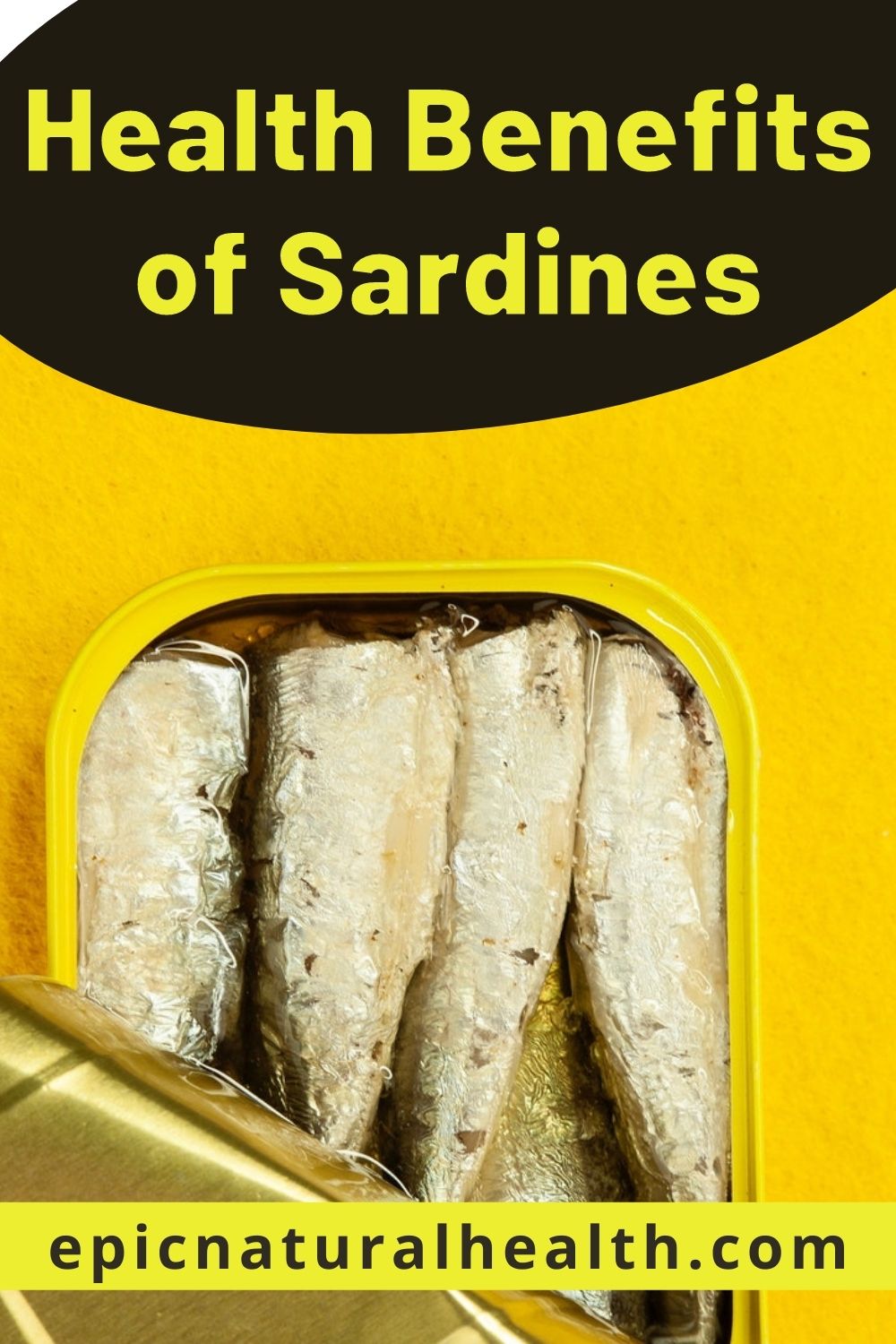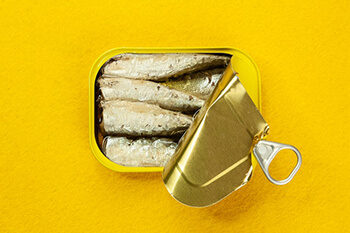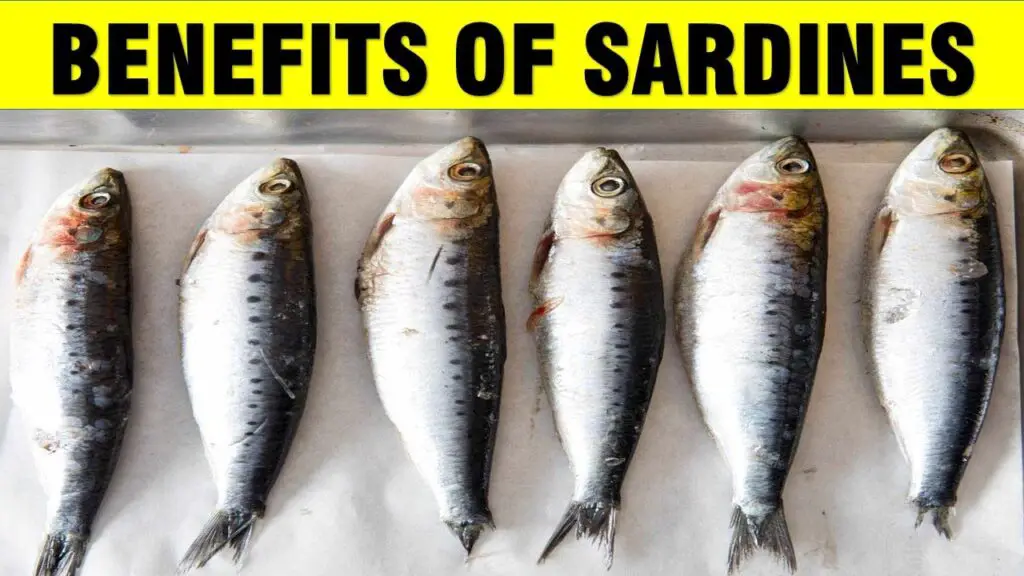We all know that fish is on the "healthy foods" list. You might have your own personal favorite fish dish (salmon is immensely popular), but another type of healthy, high-protein fish that can often be overlooked is sardines.
Of course, fish can be a tricky meal. Some people love seafood, and others hate it. Others are extremely particular about what type of seafood they'll eat, and how it must be prepared. However, nobody can argue with the facts, and the facts tell us that seafood - especially oily fish - is tremendously healthy food and an essential part of a healthy diet.
When you decide to have fish for a meal, you may not immediately reach for the sardine tins - but maybe you should. Sardines may be firmly rooted in our minds as the food of the 50s, featuring in lots of children's stories and old books, but they're still a popular food today. So, what makes sardines so healthy? What are the health benefits of eating fresh sardines?
Let's find out.
Why Should You Eat Fish?


Fish is a well-known "brain food", meaning that eating fish can nourish and boost your brain health. Fish is also anti-inflammatory and good for heart health, and contains plenty of minerals and nutrients. It's best to eat oily, fatty fish, like salmon, mackerel, trout, and yes, sardines. This is because oily fish is rich in omega-3 fatty acids.
Like most foods, however, how you eat your fish is just as important as what you eat. Battered fish is clearly not going to be as healthy as baked fish. If you choose to add extras to your fish meal, you should think about what you're adding, and whether it'll detract from the nutritious part of your meal.
For example, eating boiled, baked, steamed, or grilled fish is the healthiest option, as frying fish can add more fats and calories to the meal. It's also worth noting that sardines packed in olive oil (rather than brine or tomato sauce, or fresh sardines) may also be higher in calories. This means that while your fishy meal may be healthy by itself, what you eat along with it may not be quite so nutritious.
Essentially, fish should be a staple part of a balanced diet, just like meat and vegetables. However, if you don't eat fish, you can take omega-3 fish oil supplements. Of course, it's much healthier and simpler to get your nutrients directly from the food you eat. That's why you should eat sardines.
What Fish Are Healthiest to Eat?


Seafood is relatively healthy, but not all seafood is equal. There is a noticeable difference between oily fish and "white fish", which refers to fish like haddock and cod.
Fish and seafood can be divided into three main categories: oily fish, white fish, and shellfish. Each type of seafood has its own health benefits. For a balanced diet, you should try and eat at least two portions of fish (preferably oily fish) a week.
Types of healthy oily fish include:
- Pilchards (also known as sardines)
- Trout
- Salmon
- Mackerel
- Herring
Types of healthy white fish include:
- Cod
- Haddock
- Flounder
- Dab
- Pollock
- Plaice
White fish don't usually contain healthy fats (omega-3 fatty acids), but some types of fish may contain small amounts. Sea bass, sea bream, and halibut all contain small amounts of omega-3.
White fish is low in fat and can be a healthier alternative to fried oily fish or red meat.
Types of healthy shellfish include:
- Scallops
- Squid
- Mussels
- Prawns
Once again, some types of shellfish, like oysters, squid, and crab can contain small amounts of omega-3 fatty acids.
These types of shellfish are low in fat and contain healthy minerals, like zinc and copper.


Health Benefits of Sardines
If you've decided to add sardines to your diet, you're in for a treat. You can find all types of sardines, from fresh to canned.
Sardines are more versatile than other types of fish, lending themselves to all kinds of dishes - including breakfast. On top of that, sardines are an excellently healthy choice of food.
1. High in Protein


Sardines are high-protein foods. Protein can be found in most types of fish, meat, fruit, and vegetables, and it's relatively easy to get your daily amount of protein.
Three ounces of sardines can contain up to 23 grams of protein.
2. Rich in Vitamins and Minerals
Getting our daily quota of vitamins and minerals isn't always easy. Sardines contain vitamin D, vitamin B12, selenium, and calcium, as well as omega-3 fatty acids.
Vitamins D and B12 are especially important, as these are common vitamin deficiencies. You can also find iron and copper in sardines.
3. High in Omega-3 Fatty Acids
Omega-3 fatty acids are found in fish and seafood. Omega 3 is one of the most well-known vitamin supplements and is found naturally in oily fish.
Omega 3 fatty acids are excellent for heart and bone health, and also boost the immune system. The simplest, most natural way to get enough omega 3 fatty acids is by eating fish like sardines every week.
4. Makes You Feel Full
Some foods offer only "empty calories", meaning that they're high-fat and high in calories, but leave you feeling hungry again soon after. Sardines make you feel full and satisfied after a meal. This feeling of fullness helps to reduce cravings and the desire to snack later on.
Eating meals that leave you feeling full is the best way to avoid eating fatty, sugary foods between meals. If you're trying to lose weight, choose foods that curb the appetite - like sardines.
5. Reduces Inflammation


Inflammation causes many diseases, including cancers, heart disease, high blood pressure, and much more. Certain foods have an inflammatory effect on human health, mostly sugary foods and processed foods. However, other foods, like sardines, work to reduce the inflammation in your body.
Eating sardines on a regular basis can fight against inflammation. You can also pair sardines with other anti-inflammatory foods, like turmeric.
Sardines also have anti-cancer properties, which may be linked to their role as an anti-inflammatory. This is likely due to the high levels of vitamin D and calcium found in sardines.
6. Promotes Good Brain Function
Oily fish is known as "brain food" for a reason. 60% of the brain is made up of fat. The fat content in oily fish like sardines, coupled with the vitamins, minerals, and anti-inflammatory properties likely go a long way to keeping the brain supple and healthy.
7. Good for Eye Health


Sardines and other oily fish can help prevent the development of age-related macular degeneration. This is a degenerative condition mostly seen in people over the age of 50. Macular and retinal degeneration sometimes results in eventual blindness, and certainly results in vision loss.
8. Helps to Boost Mental Health
Sardines can help to boost mood and mental health. This is because the omega-3 fatty acids in sardines help to fight against depression and anxiety. Omega-3 helps to boost healthy brain chemicals, like serotonin.
Since low serotonin levels cause depression and can contribute to anxiety, this can go a long way to easing mental issues.
Of course, simply eating sardines isn't going to fix poor mental health - but eating a healthy, balanced diet is one of the key steps to helping get mental health back on track.
9. Boosts Bone Health
Sardines contain high levels of calcium. Mostly found in dairy, calcium is essential for strong, healthy bones. Canned sardines often have soft bones that can easily be eaten, which boosts your calcium intake. This makes a good calcium substitute if you aren't able to consume dairy.
10. An Efficient and Accessible Food


Last but not least, sardines are an efficient and accessible food. Tins of sardines are found on the shelves of every supermarket and grocery store. Sardines are inexpensive and can be added to most recipes. For example, sardines can be added to pasta dishes, bakes, and casseroles - just about any recipe that calls for fish.
Sardines may not be your favorite fish, but there's nothing unpleasant in their taste and texture. They're packed with nutrients and are low in calories, making sardines a good choice of food if you're trying to lose weight or eat healthier.
Can You Eat Too Much Fish?
It's best to eat at least one portion of oily fish a week, ideally two portions. However, you can have too much of a good thing. Due to the high levels of pollution in the ocean, oily fish may contain pollutants. If you eat too much, these pollutants can build up in the body. There have been scares regarding mercury in fish, particularly oily fish.
This doesn't mean that you should avoid eating oily fish - quite the contrary. However, it's good to eat fish in moderation, which is where the "two portions a week" advice comes from. Young girls, pregnant women, or women planning to have a baby, or breastfeeding moms should not eat more than one or two portions of oily fish a week.
This is where sardines have another benefit - they have lower levels of pollution than other fish. Sardines aren't large or predatory fish, meaning they have fewer opportunities to build up toxins and metals in their bodies. Larger fish, like swordfish and tuna, eat smaller fish as part of their diet. If each of those small fish has a tiny amount of heavy metals and/or toxins in their body, the larger fish consumes that too. Very quickly, a large amount of pollution builds up in the large fish.
However, the small, humble sardine avoids this unpleasant food chain, making sardines a safer choice for vulnerable people, especially pregnant or breastfeeding women.
The Bottom Line
If you haven't got a few tins of sardines in your cupboards, stock up today. Sardines are healthy, nutritious, packed with vitamins, minerals, and protein, and are versatile and filling. Even better, sardines are one of the cheaper types of fish. More expensive fish, like salmon, may cost too much for a family to eat on a regular basis, and salmon fillets need to be eaten fairly quickly.
Sardines, on the other hand, have long shelf lives, especially canned sardines. They're affordable for just about every family and can be used in all kinds of dishes. They provide a good source of calcium, especially for anyone who can't eat dairy, and are anti-inflammatory, mineral-rich foods.
If you haven't added sardines to your diet yet, it's certainly something you should think about doing.


